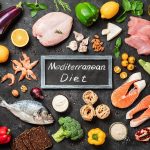
People with asthma who vape tend to develop the respiratory disease earlier in life than folks who never vaped, new research shows. Overall, asthmatic adults who said they’d vaped over the past month were over three times as likely to have developed asthma relatively early in life (before the age of 27) compared to folks who never vaped, said a team reporting the findings May 17 in the journal JAMA Network Open. According to the researchers, “harmful chemical ingredients found in electronic nicotine delivery systems have been found to affect pulmonary function and may have the potential to affect respiratory health,” perhaps including the triggering of asthma. The study was led by Adriana Pérez, of the department of biostatistics and data science at the University of Texas Health Science Center in Houston. Her team noted that smoking has long been linked to an upped risk for asthma, but studies regarding links between vaping and asthma are lacking. By 2021, more than 11 million U.S. adults said they were vaping regularly, Perez’s team said, and by 2022 over 2.5 million U.S. high school students were doing so. Could all that vaping be speeding the emergence of asthma among Americans? To find out, Pérez’ team used data from a large study focused on tobacco and health outcomes (including asthma) involving almost 25,000 adults and high school-age teens,… read on > read on >





































-300x200.jpg)
